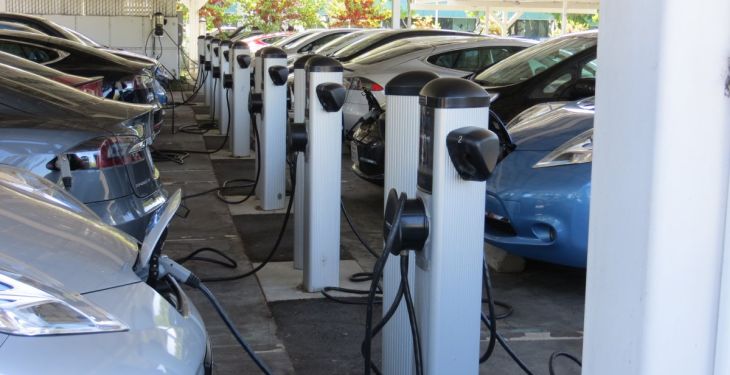Demand for cobalt has soared in the past year as investors expect inexorable growth in the global electric vehicle industry to generate a supply squeeze this year following several years of surplus production, according to CNBC.
As recently as 2005, electric vehicles globally could be counted in the mere hundreds yet already by 2015 the number had swollen to 1.26 million, according to a report from the Organization for Economic Co-operation and Development (OECD) and the International Energy Agency (IEA) published in 2016.
And that’s just the very beginning, with the supranational Electric Vehicles Initiative calling for an electric car fleet of 20 million by 2020 and the Paris Declaration on Electro-Mobility and Climate Change and Call to Action setting a global deployment target of 100 million electric cars and 400 million electric 2- and 3-wheelers by 2030.
China has been leading the charge with an estimated stock of 200 million units and tight restrictions on conventional vehicles in several cities to reduce local pollution.
Cobalt, a key component of the lithium-ion batteries used in electric cars, saw its futures price close at $55,270 per metric ton on Thursday, marking an 154 percent jump from the metal’s all-time low reached in February 2016.
The higher prices should continue on the back of strong demand from China, according to Rebecca Charlton, chief financial officer (CFO) of China Molybdenum (CMOC), a listed Chinese natural resources company which now controls 15 percent of the cobalt market after recent acquisitions, namely in the Democratic Republic of Congo.
“Obviously there’s huge buzz around the electric car space but I think what’s interesting in China is they’re looking at the electric-led automobile as going beyond cars and into public transport so if you think about the number of large population cities in China you get into some really interesting dynamics from that perspective,” Charlton told CNBC at the Platts Global Metals Awards on Thursday.
As of 2015, China had the largest global fleet of electric buses, with over 170,000 already in circulation.
Meantime, other changes in the car industry are affecting different metals, with Aviva Leebow Wolmer, chief executive officer (CEO) of steel distributor Pacesetter, telling CNBC at the same event that technological advancements present the biggest challenge to the industry.
“The reality is that cars will be automated and at some point when there are self-driving cars and there are automated vehicles, they’re safer – so will there be a need for steel in automobiles?” she asked.
“If there’s not a need for steel in automobiles will we be competing with other products and how does that strongly change our market when automotive is one of the three major industries that steel goes into?” she continued.
Attempting to apply a timeline to the coming changes, Leebow Wolmer said that automated cars are a five year or less story, not something that will take five to ten years to play out.
“However, the question of whether the world is safe enough to get rid of steel, that’s probably a lot longer horizon, you’d have to change all vehicles over. Additionally, I think that the steel industry has a great chance at fighting it if we start talking about these things now we might see how steel still superior to other products,” she added, emphasizing Pacesetter’s fervent work to ensure that it remains at the forefront of technological change within the sector.
“I’m working really hard with even other competitors in our industry to talk about why steel versus other things.”
